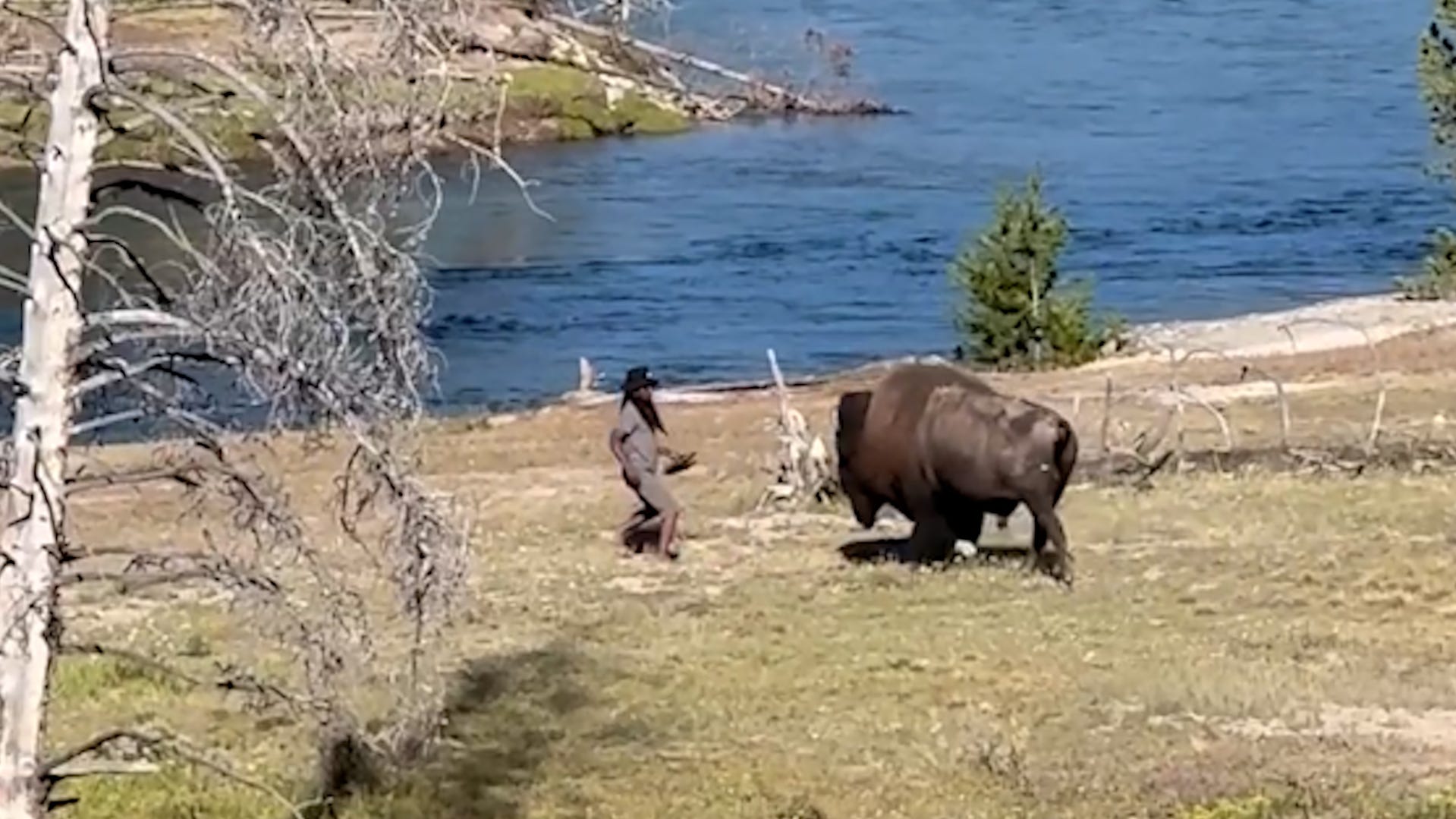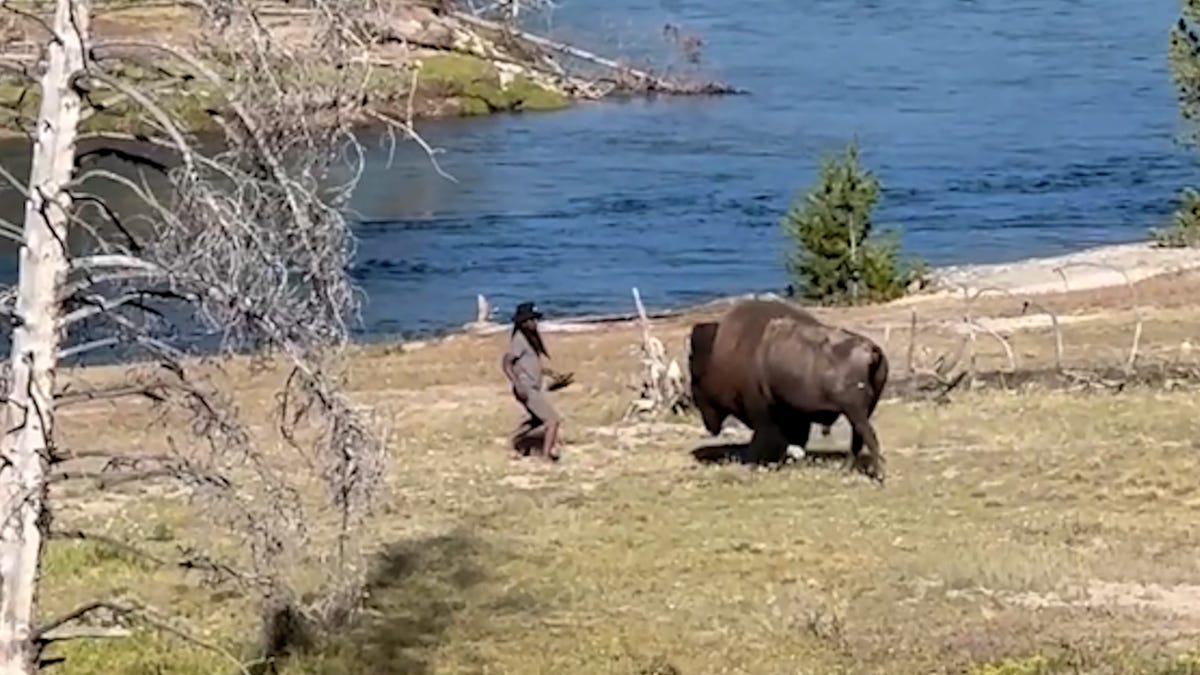
Watch a Yellowstone visitor get dangerously close to a bison
A man was recorded getting close to and trying to taunt a bison at Yellowstone National Park. Luckily, the bovine appeared to have little interest in the tourist.
A man was caught on camera taunting a full-sized bison at Yellowstone National Park in the hopes of getting its reaction.
On July 24, park visitor Brittney Matthews shared a video on social media featuring an unidentified man trying to get the attention of a bison, the largest land-dwelling mammal in North America. At first, the bison ignores him, but eventually approaches the man, who quickly backs away to keep a safe distance.
“When he did not receive the response he wanted from the bison, he walked back up the hill,” Matthews said. “He decided to try again and went back down, this time getting closer to it.”
“I was nervous for him, and sad for the bison,” Matthews said. “We were anticipating him being thrown into the river, and to be honest, I wouldn’t have blamed the bison.”
Watch: Man tries to provoke bison at Yellowstone National ParkBisons in Yellowstone
Located in northwest Wyoming, with small portions extending into Montana and Idaho, the first national park in the U.S. is the only place in the country where bison have lived continuously since prehistoric times.
With a population of 5,400 in 2024, according to the National Park Service, bison are described as agile, potentially aggressive and capable of running up to 30 mph. Males (bulls) can weigh up to 2,000 pounds, while females (cows) can weigh up to 1,000 pounds.
It is illegal to willfully remain near or approach wildlife, including birds, within any distance that disturbs or displaces the animal, NPS says, adding “if you cause an animal to move, you’re too close.
Interacting with wildlife at Yellowstone National Park
Yellowstone National Park has a list of guidelines that visitors are encouraged to follow when visiting the park and interacting with wildlife, including:
Stay at least 100 yards from bears or wolves, and at least 25 yards from all other wildlife.If an animal moves closer to you, back away to maintain a safe distance.If you cause an animal to move, you’re too close. It’s illegal to willfully remain near or approach wildlife, including birds, within any distance that disturbs or displaces the animal.Park in roadside pullouts when watching/photographing animals: do not block traffic.Never approach or pursue an animal to take its picture: use binoculars or telephoto lenses to get a better view.Stay in or next to your car when watching bears. If a bear approaches or touches your car, horn and drive away to discourage this behavior.Do not feed wildlife or leave food where they can get it, especially for bears.Report conflicts. If you’re involved in a conflict with an animal, regardless of how minor, contact us or report it to a park ranger as soon as possible.
“Wild animals are unpredictable and dangerous,” NPS says. “Every year, people are injured when they approach animals too closely. Animals that attack people may need to be killed.”
Saman Shafiq is a trending news reporter for USA TODAY. Reach her at sshafiq@gannett.com and follow her on X and Instagram @saman_shafiq7.

